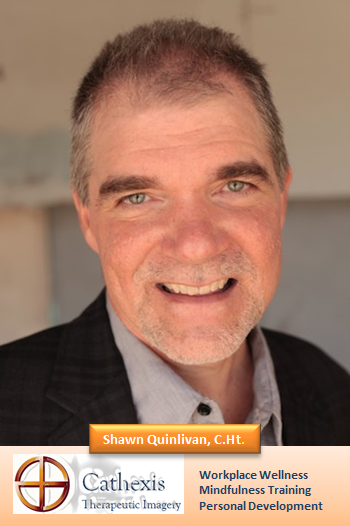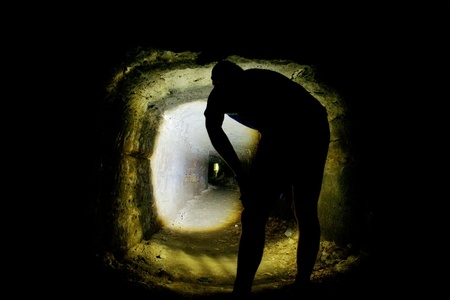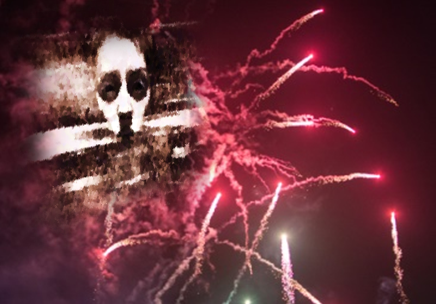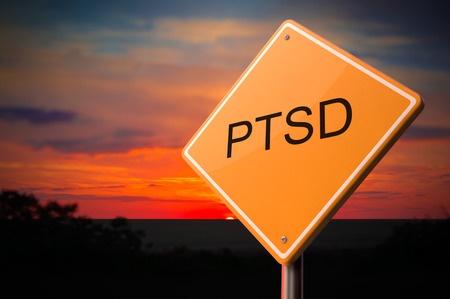My father was a combat veteran who suffered from post-traumatic stress disorder. He witnessed and participated in atrocities during the Korean War. He made life altering self-sacrifices and lived with horrors that were not entirely of his choosing. He was predisposed to violent and abusive episodes that he could not control, and inflicted a legacy of rage, vengeance and sorrow upon those who loved him the most. Overcoming the trauma of my relationship with him provided profound meaning and purpose to experiences which once seemed hopelessly tragic and senseless. The unique insights I gained into the primal nature of love and fear and how they function in the human psyche were life-changing. And it became my personal mission to help others solve their suffering by sharing what I have learned.
Childhood Trauma
As a boy I asked my father if he was ever under enemy fire. He replied that he once saw a torpedo pass the bow of a ship he was on in the south pacific. When I inquired about the blisters and open sores on his feet, which I later learned were from a severe fungal infection he contracted in the extreme cold of Korea, he said this was from his brother throwing firecrackers at him when they were kids. My dad would never talk about the Korean War and it was clear to me, even as a child, that a deep unrest resided within him about his experiences there.
When I was 7 years old, my family suddenly wasn’t Catholic anymore. I was abruptly placed in a public school and we began attending an Episcopal Church. A secret was passed from my older siblings that my dad had a wife and son in Korea, and that she left him because he beat her. My parents began having bitter fights. I witnessed my father lose his temper and become verbally abusive and physically violent with my mother. And it was only the beginning.
“Our family became familiar with an intimate and immutable fear that would continue to shape our lives for years to come.”
I was in the 7th grade when the last of his many merciless beatings of my mom occurred. I didn’t see that one but I witnessed most of them. Blood and bruises. Police. Hospitals. Neighbors. Embarrassment. Shame. Confusion. Something inside him would snap and he would explode. And afterward, he would act as if nothing had happened. That last assault landed my mother in the emergency room. She was finally ready to leave him and take us with her. I was brave and called my dad from a pay phone in the hospital lobby to tell him we wouldn’t be coming home that night—or ever. I was 12 years old. Like my sister and brothers, I too had been brutally beaten by my father. I still loved him though. We all did. But we were afraid of him.
The following days brought a divorce filing, the issuance of a judicial restraining order, and a sheriff’s escort to our home to retrieve necessities. My dad was in his study when we arrived. He was nonchalant but we soon realized he was not in total denial. The study and kitchen were intact, but the rest of the house was eerily empty; besides the furniture, the only personal belongings remaining were our clothes and shoes. There were no books, toys, trading cards, Tonka trucks or race cars, balls or mitts, hockey sticks or ice skates, albums or record players, stuffed animals, or musical instruments. My mother’s beloved piano was gone. In fact, all the tangible mementos of our life together had disappeared. When we discovered that he had burned most of those things in the incinerator in the basement, my older brother became so enraged he had to be physically restrained by the sheriffs—yet my dad remained passive. It was one of the most surreal events in my life and ushered me into a deep state of emotional shock.
Flashbacks
 In a poignant moment some years later, when life had moved on for all of us, my father finally revealed to me a little of what had happened to him in Korea. It was only the second time I ever saw him cry. But he still couldn’t really talk about it. There were only a few quotes like the one below, which he retched out like bile from the pit of his soul. He contracted a brain tumor and died shortly thereafter, and I was grateful for the estranged sort of peace I had made with him. I forgave him for all that had happened. But the impact of my father’s violence and abuse had not yet taken the measure of its toll on me. Shadows of that fear, in the shifting and malevolent form of rage, still existed deep in my heart. And year by year, as I emerged from the emotional shell that had protected me as a child, I would revisit my forgiveness of him in the specter of that ash-filled basement incinerator and its forsaken providence—his vengeful razing of the village of our family—again and again, whether I chose to or not.
In a poignant moment some years later, when life had moved on for all of us, my father finally revealed to me a little of what had happened to him in Korea. It was only the second time I ever saw him cry. But he still couldn’t really talk about it. There were only a few quotes like the one below, which he retched out like bile from the pit of his soul. He contracted a brain tumor and died shortly thereafter, and I was grateful for the estranged sort of peace I had made with him. I forgave him for all that had happened. But the impact of my father’s violence and abuse had not yet taken the measure of its toll on me. Shadows of that fear, in the shifting and malevolent form of rage, still existed deep in my heart. And year by year, as I emerged from the emotional shell that had protected me as a child, I would revisit my forgiveness of him in the specter of that ash-filled basement incinerator and its forsaken providence—his vengeful razing of the village of our family—again and again, whether I chose to or not.
“We didn’t know who we were fighting over there. The villagers would bring out food and fruit in baskets to the soldiers . . . and there would be live grenades hidden inside. My buddies were blown to bits right in front of me. It happened more than once. So we razed those villages. We killed everybody.”
The vestiges of my father’s violence overtook me in my forties. By then the conflicted emotions I suppressed as a boy had finally come to the surface, raw and often unchecked. It had become difficult to avoid angry and irrational responses in certain situations, especially those I perceived as threatening or inherently unfair. I lost my temper easily. I brooded and ranted and my moods were volatile. Indeed, the repressed rage had been tapped within me. And a disturbing pattern developed which left me in anguish each Christmas Day and on my birthday, when the intrusive recall of familial trauma and abuse was somehow triggered and I would grieve uncontrollably. I came to realize I was still afraid of my father, for he haunted my thoughts like a ghost on those days and I could not dismiss his threatening presence. I was also afraid of myself and what was happening to me.
Into The Light
The psychotherapists helped me understand my own post-traumatic stress disorder. Perhaps they helped me understand my father. But I did not change as a result of those traditional forms of therapy; in fact, I got worse. The flashbacks recurred with more intensity. The rage persisted and began to threaten the homeostasis of the life I had worked so hard to build for myself. My marriage suffered. And year by year, the dread of Christmas and my birthday gradually became intolerable. I found myself tormented by recurring thoughts of those incinerated childhood treasures and the memories attached to them—the beautiful yuletide festivities our family shared, the surprise birthday parties and celebrations, the special gifts and cherished times when we were together and all was put right in our troubled world—and I cursed my father for his desecration.
 Hypnotherapy was my salvation. I discovered the redemptive balance of honor, dignity and grace for my father’s life, and for my own. I stepped out of my tunnel of fear and the confluence of my life paths suddenly came together in a profound affirmation of my existence. After 25 years as a successful corporate restructuring professional, I left my career and went back to school. I graduated with honors from the world renowned Hypnosis Motivation Institute in Los Angeles as both a Clinical Hypnotherapist and Master of Therapeutic Imagery. In 2011, I founded Cathexis Therapeutic Imagery in Chatsworth, California.
Hypnotherapy was my salvation. I discovered the redemptive balance of honor, dignity and grace for my father’s life, and for my own. I stepped out of my tunnel of fear and the confluence of my life paths suddenly came together in a profound affirmation of my existence. After 25 years as a successful corporate restructuring professional, I left my career and went back to school. I graduated with honors from the world renowned Hypnosis Motivation Institute in Los Angeles as both a Clinical Hypnotherapist and Master of Therapeutic Imagery. In 2011, I founded Cathexis Therapeutic Imagery in Chatsworth, California.
At the heart of my approach is the use of trance state healing to help people understand how love and fear function as the primary motivational forces in our lives. My journey has afforded me a unique understanding of the landscape of suffering and shame, the fundamental nature of rage and the various ways it can be triggered, and the innate power of compassion and empathy to transform lives and connect us to the deeper significance and intention of our being.
I am a therapist. I am an intuitive agent for change. I am an inspirator. And I am a survivor. I cannot call my traumas war stories—those belonged to my father. My suffering was not his suffering; my terror was not his terror; my sacrifices were not his sacrifices. I was blessed with a vision of making his tragic life stand for something noble, and that is how helping people conquer fear became my mission.
©2016 Shawn Quinlivan, C.Ht. & Cathexis Therapeutic Imagery. All Rights Reserved.
 Cathexis Therapeutic Imagery specializes in innovative approaches to workplace wellness, mindfulness training, and personal development. Via private coaching, presentations, workshops, training events, and our partnership in the unique online wellness community Your Wellness Room—used by Kaiser Permanente, EFactor and other notable companies—our nationally recognized programs and practices help people and organizations make positive changes. Please call for a free consultation at (818) 512-4371 or contact us via email.
Cathexis Therapeutic Imagery specializes in innovative approaches to workplace wellness, mindfulness training, and personal development. Via private coaching, presentations, workshops, training events, and our partnership in the unique online wellness community Your Wellness Room—used by Kaiser Permanente, EFactor and other notable companies—our nationally recognized programs and practices help people and organizations make positive changes. Please call for a free consultation at (818) 512-4371 or contact us via email.



